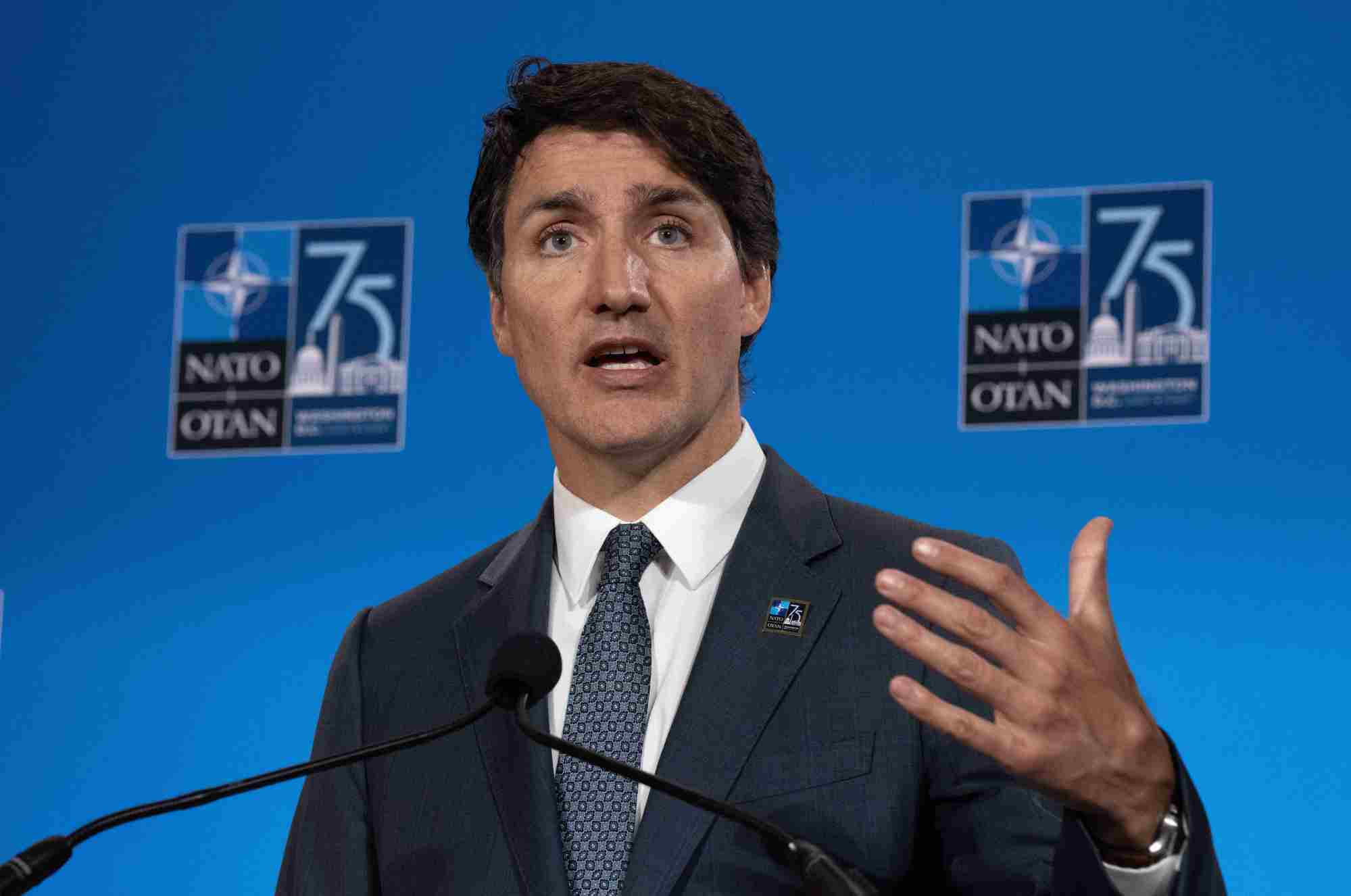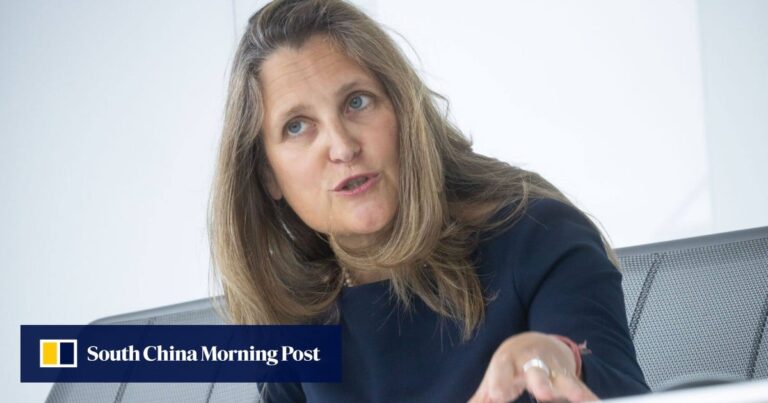Canada’s finance minister said he will talk with businesses and unions next week about building trade barriers against Chinese-made cars, suggesting the government may expand beyond autos.
The government announced last month that it would solicit public comment on how to address “unfair Chinese trade practices” on electric vehicles, but Finance Minister Chrystia Freeland said in an interview with Bloomberg News on Friday that “this consultation may actually be much broader than that.”
Canada, which relies heavily on two-way trade with the United States, is closely watching the Biden administration’s moves to impose higher tariffs on Chinese products including electric vehicles, solar cells, batteries and steel.
Freeland, who also serves as deputy prime minister, said Canada has no choice but to view its trading relationship from a national security perspective.
“Geopolitics and geoeconomics are back, which means the West, particularly the U.S., is prioritizing secure supply chains and taking a different stance on Chinese excess capacity,” she said. “And that means Canada is going to play an even more important role for the U.S.”
Freeland, who is of Ukrainian descent, pointed to a statement this week from the North Atlantic Treaty Organization that China is a “crucial backer” of Russia’s war in Ukraine.
“What NATO said this week about China is significant,” the minister said. “I would urge people to pay attention to it.”
Prime Minister Justin Trudeau’s government is seeking to align itself with its G7 allies after the Biden administration announced plans to raise tariffs on Chinese goods and the European Union announced new taxes of up to 48% on Chinese cars. Canada currently imposes a tax of about 6% on Chinese cars.
Bloomberg News first reported last month that Canada was preparing to potentially raise tariffs on Chinese-made electric vehicles, following in the footsteps of the U.S. and EU. The hearings are the first step in the process.
China denies Western accusations that it is flooding the market with cheap goods, but also says the tariffs risk damaging trade and economic cooperation between Beijing and Canada.
The government is also facing pressure at home, where it has promised billions of dollars in subsidies to lure global automakers such as Volkswagen AG and Stellantis NV to start making electric vehicle batteries in Ontario to supply assembly plants in North America.

Canada’s auto industry also argues that Chinese products are cheap because of lax labour standards, and is pressuring the Canadian government to put up barriers to Chinese-made electric vehicles to protect local jobs and wages.
“To me, labor is a very important piece of the puzzle and I think the time is now,” she said. “China is a centrally planned communist economy and they have a deliberate, state-directed policy of overcapacity.”
The Trudeau government has been involved in a number of diplomatic and trade disputes with China, Canada’s second-largest trading partner after the U.S. Most notably, Canada arrested Huawei Technologies executive Meng Wanzhou on a U.S. extradition warrant, and China retaliated by detaining two Canadian citizens for nearly three years.
But Freeland wasn’t shy about talking about China on Friday, saying there was a widespread view that it was a mistake for China to join the World Trade Organization more than 20 years ago.
“China’s economic policies reflect Leninist teachings about deliberately acting to monopolise its position as commander in chief of the global economy and to weaken and eliminate Western competitors,” she said. “I think it’s time for us to be clear about that.”


.jpg?itok=Qexy_wA0)